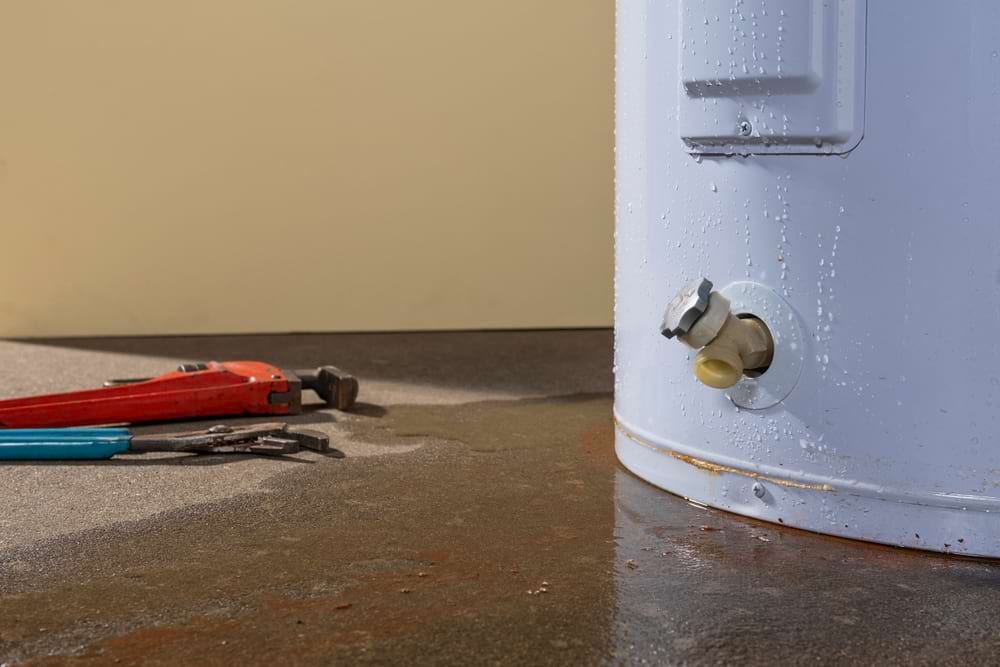Cash House Buyers
We are the UK's fastest cash property buyer
- FREE cash offer within minutes
- Receive funds in 7 days
- A guaranteed sale on any property

Cash house buyers (like We Buy Any Home) are companies who buy property upfront with their own funds.
We don’t rely on mortgages or other property sales to complete purchases.
So, we provide faster and more certain sales than other buyers.
We have over 14 years of experience, and thousands of happy clients.
However, not all companies in this industry are genuine.
- Some act on behalf of other organisations
- Some charge extra or hidden fees
- Others profit by selling your information to third parties.
We Buy Any Home are genuine cash buyers.
We don’t charge hidden fees and we guarantee you receive the full final quoted price for your property.




Free cash offer within minutes, any condition, any location.
We understand the importance of selling your home
We Buy Any Home have successfully bought thousands of properties across the UK.
Our testimonials and reviews are filled with satisfied customers.
We are the UK’s biggest cash house buyer for a reason.
Our experienced team and cash-buying process are transparent, fast and reliable.
Start the cash buying process today with our team of property experts.
Why use cash buyers?
Imagine the freedom of having cash in hand in just days, allowing you to move forward with your plans with confidence.
By contrast, traditional sales can take months to complete.
Cash buyers enable you to avoid complicated and fragile property chains.
Property chains involve multiple buyers and sellers relying on one another to complete transactions.
A single broken link can delay a sale or make it fall through.
Traditional property sales involve hiring an estate agent.
They market your property, conduct viewings, and negotiate with potential buyers.
These services typically come with a large fee – usually a percentage of your propertyy’s final selling price.
With good cash buyers, you can avoid estate agency fees.
Get a fast sale
Imagine the freedom of having cash in hand in just days, allowing you to move forward with your plans with confidence.
By contrast, traditional sales can take months to complete.
Avoid property chains
Cash buyers enable you to avoid complicated and fragile property chains.
Property chains involve multiple buyers and sellers relying on one another to complete transactions.
A single broken link can delay a sale or make it fall through.
No need for estate agent fees
Traditional property sales involve hiring an estate agent.
They market your property, conduct viewings, and negotiate with potential buyers.
These services typically come with a large fee – usually a percentage of your propertyy’s final selling price.
With good cash buyers, you can avoid estate agency fees.
Free cash offer within minutes, any condition, any location.
Getting started
Getting started is easy. Simply call us or fill out our online enquiry form.
We only need your:
- Contact details
- Property address
Making an offer
Within 24 hours of receiving your enquiry, we will call you to discuss your ideal sale time frame and any questions you have.
We will make you an initial cash offer for your home, based on:
- Details you have given
- Our desktop valuation
- Current market conditions.
It will be the best possible price we can pay for your property.
If you’re happy with it, we will send you it in writing, online or in the post.
Final cash offer
If you accept our cash offer, we will send a simple list of paperwork we need.
We then arrange for a maximum of two RICS-qualified surveyors to assess your property.
At this point, you’re welcome to work with your own solicitor or we appoint one for you.
We will then make a final offer. This is based on these valuations and the expertise of our in-house underwriting team.
Free cash offer within minutes, any condition, any location.
How to verify cash buyer for your house
We understand that selling your home is a significant decision. We’re here to make the process smooth and stress-free.
-
Research companies
-
Get a realistic price
-
Read reviews and testimonials
-
Check credentials and accreditations
-
Verify on Companies House
-
Request proof of funds
-
Get solicitor verification
-
Confirm flexibility for a close date
-
Validate there is no third-party involvement
The following steps can help you determine whether a cash buying company is legit:
1. Check accreditations:
Look for accreditations and memberships to industry organizations.
For example:
- The National Association of Property Buyers (NAPB)
- The Property Ombudsman Scheme.
This gives you confidence that the company follows industry standards and regulations.
2. Ask for references:
Request references from previous clients.
Speak with them about their experience selling their home to the cash house buyer.
This gives you a firsthand account of their satisfaction with the process and outcome.
3. Verify cash funds:
Cash buyers must prove they can pay in full. This means paying without relying on loans or financing.
As the UK’s largest cash buyer, We Buy Any Home has the funds to purchase your property directly.
We don’t rely on any chains or third-party lenders.
Research companies
The following steps can help you determine whether a cash buying company is legit:
1. Check accreditations:
Look for accreditations and memberships to industry organizations.
For example:
- The National Association of Property Buyers (NAPB)
- The Property Ombudsman Scheme.
This gives you confidence that the company follows industry standards and regulations.
2. Ask for references:
Request references from previous clients.
Speak with them about their experience selling their home to the cash house buyer.
This gives you a firsthand account of their satisfaction with the process and outcome.
3. Verify cash funds:
Cash buyers must prove they can pay in full. This means paying without relying on loans or financing.
As the UK’s largest cash buyer, We Buy Any Home has the funds to purchase your property directly.
We don’t rely on any chains or third-party lenders.
Get a realistic price
It is not possible for genuine cash buyers to offer 90-100% of the market value of your home.
If they do, ask them how they make money as a company and whether the offer of your property will likely be dropped.
At We Buy Any Home, we provide a genuine and realistic offer from the start.
We make it clear to all our customers that we cannot pay full market value.
But we can offer a certified sale with a completion date of your choosing.
Read reviews and testimonials
Reviews and testimonials provide insight into cash buyers’ previous customers’ experiences.
Look for online reviews on reputable platforms such as Trustpilot and Google Reviews.
Pay attention to both positive and negative reviews to gain a balanced view of the company’s reputation.
Look for testimonials on their website. Or ask the company if they can provide references for you to speak with.
Trust your instincts. Only work with a company you feel completely comfortable with.
Check credentials and accreditations
Look for accreditations and memberships to industry organizations, such as:
These set standards and regulations that members must adhere to. This gives you confidence in companies’ legal and ethical practices.
Additionally, check for any certifications or qualifications. For example, membership of trade associations like:
- Royal Institution of Chartered Surveyors (RICS)
- National Association of Estate Agents (NAEA)
We Buy Any Home is a founding member of the NAPB and is fully regulated by The Property Ombudsman.
Verify on Companies House
Find them on Companies House.
You’ll only need their registered trading name. This should be in their website’s Terms and Conditions.
Check how long they have been trading and who their directors are.
Use Google, LinkedIn, and other sites to research their history.
Find their offices and ask yourself: “Do they look like an authentic company?”
We Buy Any Home are based in the heart of the City, London.
We have been trading for 14+ years. We are the UK’s leading cash-buying company.
Request proof of funds
Proof of funds can be in the form of bank statements or a letter from the bank.
The latter confirms that the buyer has sufficient funds to complete the purchase.
The documentation should be recent and show the buyer’s name and available balance.
A genuine cash buyer is self-funded. They don’t rely on third companies or mortgage buyers.
Get solicitor verification
Solicitors play a crucial role in the UK property industry. Their confirmation can add credibility to the buyer’s claims.
They can confirm whether buyers are holding funds on behalf of a cash buyer or if they have seen proof of funds.
We Buy Any Home has an expert team of solicitors ready to process your sale. However, we can work with your own selected solicitor if you prefer.
Confirm flexibility for a close date
The main benefits of selling for cash are:
- Quick sales
- High flexibility about the closing date
- High degree of certainty that sales will complete.
Validate there is no third-party involvement
Third-party involvement in cash buying means other people or companies are part of deals.
This means parties other than the buyer and seller, such as:
- Mortgage lenders
- Investment partners
- Other outside funders.
They create chains in transactions, which can add delays and potential for fall throughs.
By contrast, a true cash-buyer is self-funded. Their purchase process is quick and direct.
We Buy Any House for cash throughout the UK
We operate across the United Kingdom, including England, Scotland, and Wales. We can buy your house fast, anywhere from northern Scotland to the beaches on the south coast.
Free cash offer within minutes, any condition, any location.
Homeowners trust us to buy their homes.
View more reviews "Faultless"
I found the whole process faultless. Right from my initial enquiry the communication I received was excellent, all the way through to the completion of the sale of my property. I would be happy to recommend We Buy Any Home.
"Wouldn’t hesitate to recommend them"
We approached We Buy Any Homes after our house sale fell through at the last minute. We were keen to progress with our onward purchase and the team at We Buy Any Home provided that opportunity. It was a smooth, easy, straightforward process and we were guided throughout the process. We wouldn’t hesitate to recommend them.





Immediate access to funds is one of the key benefits of selling to a cash buyer.
Sales through traditional estate agents can take months to complete. They also come with uncertain completion dates.
By contrast, cash buyers can close on the property in as little as 7 days. They can also avoid delays and uncertainties.
This can be particularly beneficial if you need to access cash urgently. Or if you are looking for a quick, simple and stress-free property sale.
Immediate access to funds
Immediate access to funds is one of the key benefits of selling to a cash buyer.
Sales through traditional estate agents can take months to complete. They also come with uncertain completion dates.
By contrast, cash buyers can close on the property in as little as 7 days. They can also avoid delays and uncertainties.
This can be particularly beneficial if you need to access cash urgently. Or if you are looking for a quick, simple and stress-free property sale.
Avoid hidden costs and fees
Before committing to a sale, review the terms and conditions of offers. This includes checking fees or charges.
Some cash buyers may try to sneak in hidden costs. For example, valuation fees, legal fees, or administration fees. These can significantly reduce the amount you receive for your property.
To avoid this, ask the cash buyer for a breakdown of all expenses involved in the sale. A reputable company will be transparent. They should inform you about any extra charges and how they calculate their offer.
Be wary of any buyer who is unwilling to provide this information. Or any who seems hesitant to answer your questions about fees.
Sell in financial difficulties
Selling your house to a cash buyer may be a viable solution in certain situations. For example, if you are:
- Struggling to keep up with mortgage payments
- Facing repossession
- Dealing with other financial challenges.
Cash buyers can provide you with immediate access to funds. This allows you to quickly settle debts and avoid the risk of repossession.
They can also help you avoid the legal fees associated with foreclosure proceedings, bankruptcy, etc.
Free cash offer within minutes, any condition, any location.
At We Buy Any Home, we’re always transparent about how much we can buy your property for.
We cannot offer full market value.
But unlike the open market, we can guarantee a sale in your chosen time frame.
This removes the stress, uncertainty, and waiting of the open market.
That’s why our customers rate us as “Excellent” on Trustpilot.
Certain property buying companies give unrealistically high offers on properties.
They want to win business and tie customers into contracts.
At We Buy Any Home, we complete your sale in the time frame you want.
You pick the completion date and we’ll work to it.
The quickest we can buy your house for cash is in as little as 7 days!
Untrustworthy companies will intentionally delay sales, often for months.
In the meantime, their customers make plans reliant on selling their house soon.
The company will then lower their initial offer – hoping that sellers have no option but to accept it.
Some cash property buying companies are eager to tie you to restrictive terms.
They often ask you to sign an “option agreement” on your property. This means they place this option on the Land Registry, locking you into using their service.
They then strong-arm sales at a price you aren’t happy with.
By contrast, at We Buy Any Home, we have a very simple contract that states our commitment to you.
Even a small change in our offer price allows you to withdraw. (This might happen, for example, if your formal RICS survey uncovers unforeseen defects).
In addition to this, we guarantee to beat the price of any genuine cash buyer.
Get a realistic offer
At We Buy Any Home, we’re always transparent about how much we can buy your property for.
We cannot offer full market value.
But unlike the open market, we can guarantee a sale in your chosen time frame.
This removes the stress, uncertainty, and waiting of the open market.
That’s why our customers rate us as “Excellent” on Trustpilot.
Certain property buying companies give unrealistically high offers on properties.
They want to win business and tie customers into contracts.
No delay or stall tactics
At We Buy Any Home, we complete your sale in the time frame you want.
You pick the completion date and we’ll work to it.
The quickest we can buy your house for cash is in as little as 7 days!
Untrustworthy companies will intentionally delay sales, often for months.
In the meantime, their customers make plans reliant on selling their house soon.
The company will then lower their initial offer – hoping that sellers have no option but to accept it.
Never get locked into an agreement
Some cash property buying companies are eager to tie you to restrictive terms.
They often ask you to sign an “option agreement” on your property. This means they place this option on the Land Registry, locking you into using their service.
They then strong-arm sales at a price you aren’t happy with.
By contrast, at We Buy Any Home, we have a very simple contract that states our commitment to you.
Even a small change in our offer price allows you to withdraw. (This might happen, for example, if your formal RICS survey uncovers unforeseen defects).
In addition to this, we guarantee to beat the price of any genuine cash buyer.
Frequently asked questions when selling your house for cash
Call our team of experts:
0800 774 0004
Is a cash buyer better for a house?
It depends. A cash buyer is often considered better for a faster sale. It reduces the risk of a sale falling through saves on fees and interest payments. Traditional buyers provide a slower and more uncertain sale processes. However, they will pay closer to market value.
How do I find a cash buyer for my house?
The following strategies can help you find a cash buyer for your house:
- Contact property investors or investment companies
- Utilize online platforms that cater to cash sales
- Network through real estate agents familiar with cash transactions
- Advertise in local newspapers or online classifieds
- Reach out to property buying companies that offer quick, cash purchases.
How do cash house buyers make money?
Cash buying companies make money in one of several simple ways.
- We put the properties we have purchased on the market straight away
- We renovate them and then put it back on the market
- Or we rent them out.
We need to cover our own buying and selling costs and make some profit on purchases. This is why we’re unable to purchase properties for full market value.
We provide a guaranteed, quick and hassle-free sale. The trade-off is that you could potentially get more for your property if you wait it out on the open market.
How much discount do cash buyers get?
Cash buyers often receive a discount on the purchase price of a home. This varies, but it typically ranges from 1% to 10%.
The exact discount depends on several factors, including:
- The property’s condition
- market conditions
- The seller’s timeframe.
We Buy Any Home typically offers 75 – 85% of market value for homes. We base our final figure on property type and market conditions.
What kind of people use a cash house buyer
People choose to use a cash house buyer for all sorts of reasons.
For example, some want to avoid repossession or get through financial difficulty.
Some couples filing for divorce want to avoid a house sale dragging proceedings out.
Some want to sell inherited property, are looking to relocate, want to go travelling, or simply want to downsize.
For many, We Buy Any Home is a preferred alternative to the open market. This is due to the efficient, guaranteed and stress-free service we deliver.
Why don’t cash buyers pay full market value?
Cash buyers incur high costs, including costs associated with selling and renovating properties. And high stamp duty expenses, preparing properties for rental, and more.
Paying the full market value would financially unsustainable for us. We would be unable to continue providing the alternative selling solution we offer.
My property is on the market, when should I consider using a cash house buyer?
It is completely up to you at what point you consider using a cash house buyer.
Properties that have been on the market for a while might have had very few viewings and no offers. Or even lots of viewings and no offers.
There might be an issue with them which makes it unmortgageable. For example, subsidence or Japanese knotweed.
As we’re a cash buyer, we’re still able to buy properties with these sorts of issues. The cost of repairing them would often outweigh the benefit of selling on the open market. In most cases, you’d be better off coming to us straight away.
Do you ask for any upfront payment?
We never ask for any payment, upfront or otherwise. Nor should any other “sell house for cash” company. We don’t charge for our service.
Are there any cancellation or withdrawal fees?
In the rare event that an offer needs to change, you can withdraw from our service completely free of charge.
This might come about due to a significant defect uncovered in a survey, for example.
If the offer hasn’t changed and you change your mind, there may be a small charge. This depends on the resources and time we’ve invested in your property sale up to that point.
However, we handle each situation individually. We are very understanding of everyone’s circumstances. Your satisfaction is important to us.
Do I need to sign a lock-in contract?
We ask that you sign a simple contract. It states our obligation to purchase your property from you at the agreed-upon price.
Should our offer change once we receive the RICS survey results, then you are free to walk away from us.
Still interested in selling to cash home buyers? Let us get a free cash offer to you today!
Do I need a solicitor to buy a house for cash?
Yes, even when buying a house with cash, it’s highly recommended to use a solicitor or conveyancer.
They handle the legal aspects of the purchase. This includes:
- Conducting property searches
- Dealing with the land registry
- Ensuring the transaction is legally sound and in your best interest.
Are you able to provide proof of cash funds upon request?
Yes. As a genuine cash buyer, we can provide evidence that we have the funds to purchase your property, should you request it.
If you are looking for a fast house sale, cash home buyers like us could be what you need. We offer full transparency and will assist you with your house sale. Get started today and let us get a cash offer for you now!
Do you buy property for yourself or others?
As a genuine cash house buyer, we purchase your property directly. Depending on the type of property, its location and its condition, we will either sell the property onwards or rent it out.
If you have a property you need to sell fast, speak to us. Get a cash offer and your old house could soon become someone else’s dream home!
How long does a cash house buyer take to buy my house?
Selling to a cash house buyer can significantly speed up the process compared to traditional sales. The timeline can vary, but transactions can often be completed in as little as 7 to 28 days, depending on the efficiency of the parties involved and the absence of a property chain.
Is cash house buying a scam?
Cash house buying itself is not a scam; it’s a legitimate way of selling a property quickly. However, like any industry, it can attract unscrupulous individuals or companies. To avoid scams, ensure the cash buying company is reputable, check for reviews, verify their credentials, and ensure they are members of relevant regulatory bodies like the National Association of Property Buyers (NAPB) or The Property Ombudsman in the UK. Always read contracts carefully and consider seeking independent legal advice before proceeding.
Here you will find the latest UK property
news, as well as industry tips and advice.









Free cash offer within minutes, any condition, any location.
Get a free cash offer today
Enter your details below
"*" indicates required fields









